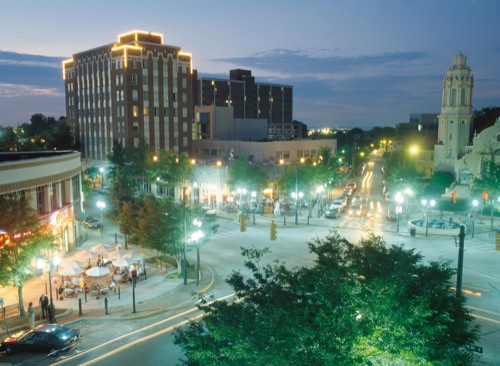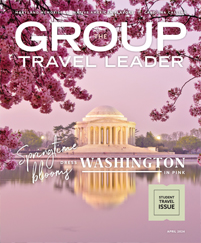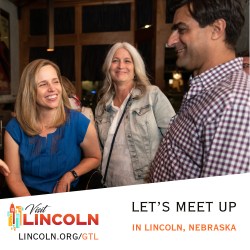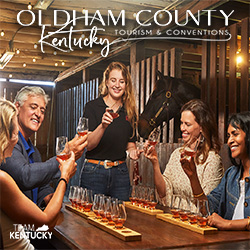
Courtesy Greater Birmingham CVB
Fewer than 50 years ago, on Sunday, Sept. 15, 1963, four young girls dressed for Sunday school were killed when members of the Ku Klux Klan bombed the 16th Street Baptist Church in Birmingham, Ala. Their names were Addie Mae Collins, Denise McNair, Carole Robertson and Cynthia Wesley.
Forty-five years later, Barack Obama was elected the first African-American president of the United States.
For those of us who have lived through this transition in American history and who have some personal perspective on these and related events, it is remarkable.
The idea for this feature began with an advertisement by the Greater Birmingham Convention and Visitors Bureau that appeared a few months ago in this magazine. The graphic theme was simple: Birmingham,1963.
The ad was stark — in black and white — and its copy said that this was the year “the world woke up.” It addressed the historic events that took place there preceding passage of the Civil Rights Act of 1964.
That message made me realize that we are on the eve of a 50-year anniversary for a decade that for many of us defined our lives. The 1960s not only changed the course of racial relationships in America, but also birthed a social revolution, an era of largely unfettered self-expression and a youth-led uprising against a war in Southeast Asia.
As if that weren’t enough, all this social upheaval was choreographed to rock music that spared no institution and that held nothing sacred.
It was like America had taken all its medicine in one long, excruciating decade.
After seeing that ad, I called a friend of mine in Birmingham who I knew would be involved in this city’s look backward.
“It’s very important to us in Birmingham and to our partner cities across the South that the world comes and sees how far we’ve come,” Sara Hamlin told me. Hamlin is vice president for tourism for the Greater Birmingham CVB. “I would like for people of all ages today to understand the sacrifices that were made by people of both races during these turbulent times in Birmingham.”
Birmingham is one city that is taking this anniversary very seriously and that sees it as a yearlong commemoration in which out-of-town guests should feel welcome to take part.
“We’re creating a walking trail that will allow people to easily visit Kelly Ingram Park, where many demonstrations began; 16th Street Baptist Church, where four little girls died; the Civil Rights Institute, one of our city’s proudest accomplishments; and other sites,” said Hamlin. “And we’re working with tour companies that want to bring visitors here to be part of it.”
I traveled to Birmingham to tour these sites with Hamlin and to meet some of the people who will help with plans to share the events with visitors. At lunch, Vickie Ashford, the bureau’s director of public relations, told me about the role that young people played in the civil rights movement.
“Children spurred a lot of the interest in civil rights 50 years ago,” she said. “You’ll learn a lot about the children’s march that took place in 1963. Young children marched with others for a better way of life. Children were arrested with adults. A lot of parents did not know where their children were after they were arrested.”
I asked Hamlin and Ashford if there was anything to celebrate there or if “celebration” is too frivolous a term for the occasion.
“I do see this as a celebration of sorts,” said Hamlin. “We’ll be celebrating how far this city has progressed. We don’t want to leave people in that moment; we just want people to remember those who served at that time. A lot of reconciliation has taken place in this city.”
We were joined briefly at lunch by Chuck Faush, chief of staff for Birmingham Mayor William A. Bell. I asked if his office was ready for the world’s eyes to be on Birmingham in 2013. He looked at me and said, “Do you think we are?”
I answered that I had been coming to Birmingham for the past 15 years and that I thought this was one of the South’s most gracious cities — with a great spirit, world-class restaurants and a wonderful quality of life.










